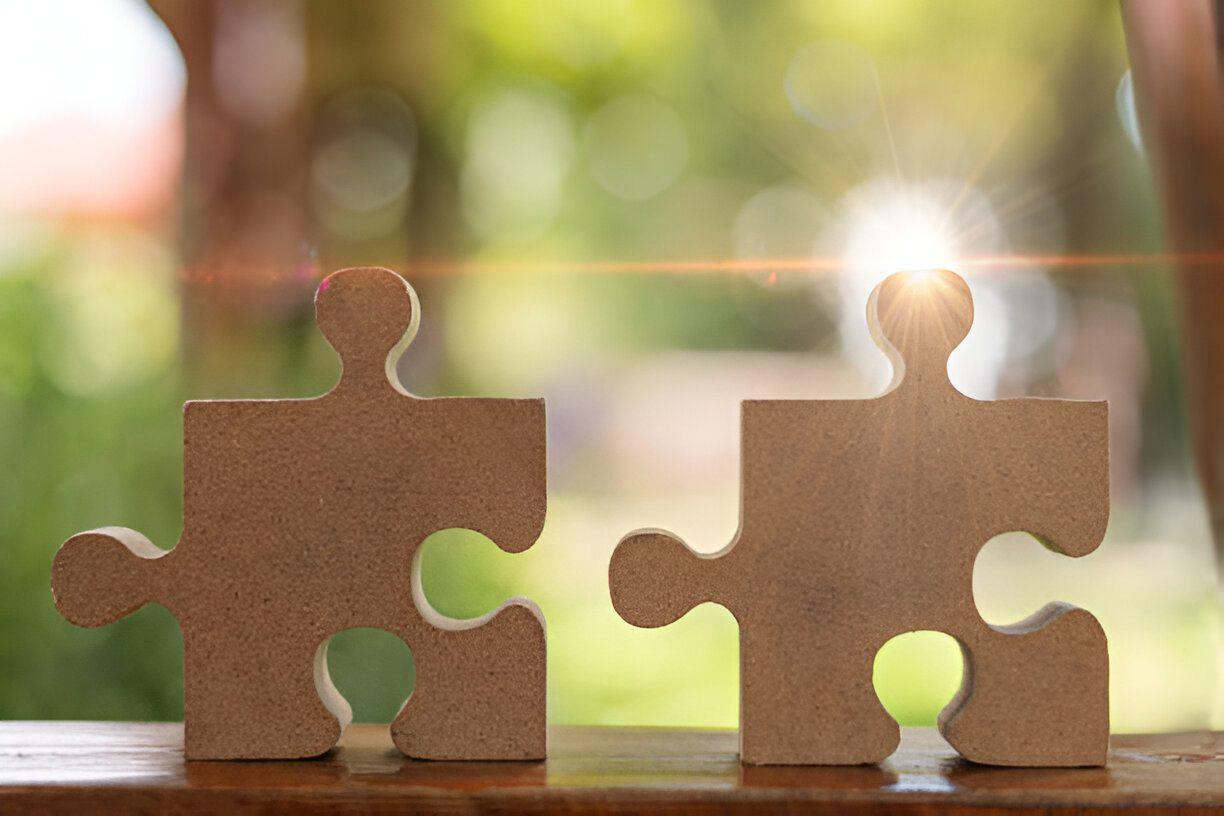A Quiet Collapse of Security
Losing trust in someone—whether through betrayal, repeated disappointments, or deceit—can be as jarring as any tangible loss. It reshapes your view of the world and questions your sense of security. According to recent studies, many who face broken trust find it profoundly impacts their future relationships and sense of self. This guide explores the journey of grieving lost trust and discovering ways to rebuild hope and connection.
“After being deceived by someone I considered a friend, I started doubting everyone. Learning to trust again felt impossible—until I realized it was vital for my own peace.”
When Trust Feels Like a Distant Memory

Standing on Shaken Ground
Trust is the foundation of human connection, an invisible thread that makes relationships strong and meaningful. When trust is broken—through betrayal, deceit, or consistent disappointment—the emotional impact can feel like the ground beneath you has shifted. This loss is profound, as it doesn’t just alter your view of others but reshapes your perception of the world and your place in it. Research highlights that the loss of trust can lead to long-term changes in emotional security, social behavior, and self-worth, making the grief of lost trust a complex and deeply personal process.
Trust is the foundation of human connection, an invisible thread that makes relationships strong and meaningful. When trust is broken—through betrayal, deceit, or consistent disappointment—the emotional impact can feel like the ground beneath you has shifted. This loss is profound, as it doesn’t just alter your view of others but reshapes your perception of the world and your place in it. Research highlights that the loss of trust can lead to long-term changes in emotional security, social behavior, and self-worth, making the grief of lost trust a complex and deeply personal process.
Understanding the Grief of Lost Trust
The Nature of Trust
Trust is more than reliance; it’s a belief in another’s integrity, honesty, or reliability. When broken, it’s not just the relationship that’s damaged but also your worldview and sense of safety.
Emotional Responses
In the immediate aftermath, emotions like shock, sadness, anger, and betrayal surface. Over time, these can deepen into cynicism or wariness, causing you to withdraw emotionally or socially.
Impact on Self
The loss of trust often triggers self-doubt. You might question your own judgment, feel unsafe in relationships, or struggle with a diminished sense of self-esteem and security.
Navigating the Grief
- Expression of Emotions
Allow yourself to process the full spectrum of emotions. Talk to someone you trust, write in a journal, or use creative outlets like art or music to express your pain. - Support Systems
Seek comfort from friends, family, or professionals who can provide a safe, nonjudgmental space for healing. Consider support groups where others share similar experiences; this can validate your feelings and remind you that you’re not alone. - Re-evaluating Relationships
Use this period to reflect on the people you choose to trust. This isn’t about becoming overly skeptical but learning to discern who earns and deserves your trust. - Self-Care
Prioritize activities that nurture your mind and body. Exercise, mindfulness, and hobbies can restore balance and reinforce your sense of self outside the pain of betrayal.
The Role of Forgiveness
Forgiveness for Healing
Forgiving doesn’t mean condoning or forgetting the betrayal. Instead, it’s about releasing the emotional weight of anger and resentment to free yourself for growth and peace.
Forgive Without Forgetting
Remember the lessons the betrayal taught you. Forgiveness allows healing, but it doesn’t require naivety.
The Grieving Process
Acknowledgment
Recognize that mourning the loss of trust is a valid and necessary process. Accepting that you’re grieving this intangible loss can help you navigate it more intentionally.
- The Grief Cycle
You may experience the classic stages of grief: - Denial: Struggling to accept the betrayal or its implications.
- Anger: Directing frustration at the person who betrayed you or even yourself.
- Bargaining: Hoping to restore the broken trust or searching for ways to undo the damage.
- Depression: Feeling overwhelmed, isolated, or disheartened.
- Acceptance: Coming to terms with the loss and adjusting to a new reality.
Rebuilding Trust – With Caution
Setting Boundaries
Establish clear boundaries in new or existing relationships. These boundaries protect your emotional health and ensure mutual respect.
Gradual Trust
Rebuilding trust is a slow process. Small, consistent actions over time—not grand gestures—can demonstrate reliability and integrity, laying the groundwork for renewed confidence in others.
Personal Growth
Reflect on the experience to learn more about yourself and your values. Use the betrayal as a stepping stone toward stronger emotional resilience and clearer relationship priorities.
“Even when faith in others dims, the light of our own resilience can guide us to trust again.” — Fiona L.
Challenges and Opportunities
Social Isolation
A natural response to lost trust is withdrawing from others. While this can protect you temporarily, prolonged isolation may hinder healing. Seek connections that feel safe and nurturing.
Relearning Trust
Trusting again takes courage and patience. Start small, allowing relationships to prove themselves over time.
New Perspectives
Loss of trust can deepen your understanding of human nature and relationships. You may come out of this experience with greater clarity about what you need and deserve from others.
Things To Try This Week!
- Boundaries Brainstorm: Make a list of clear emotional and interpersonal boundaries you need to feel safe. Start implementing them gradually in your daily interactions.
- Trust Journaling: Each night, write about one small act of trust you witnessed or received. Recognizing trustworthy moments can restore hope in reliable connections.
- Supportive Check-In: Reach out to a friend or family member just to talk openly—about your worries, progress, or any triumphs. Sharing fosters a sense of connection and understanding.
Conclusion
Grieving the loss of trust is a journey of transformation. It’s not only about mourning what was but learning to navigate a new world with greater awareness and care. While the process is painful, it offers the chance to grow, to rebuild relationships on stronger foundations, and to connect with others authentically. Trust may never be as freely given as before, but with time and effort, it can become more resilient, reflecting the strength and wisdom gained through the experience.
Losing trust may make the world feel dimmer, but slowly reclaiming faith in others can lead to deeper, more authentic bonds than before.
In our All Things Cherish collection, discover gentle reminders and heartfelt keepsakes that support your journey from doubt to renewed confidence—inviting compassion, self-care, and the nurturing of safe, meaningful relationships.
Finding Comfort, One Heartfelt Step at a Time
No matter where life takes you, caring for your emotional well-being should always have a place in your daily routine. Our All Things Cherish collection offers soothing keepsakes, reflective prompts, and heartfelt resources crafted to nurture hope in every season. Let us walk beside you on the path to renewed strength and lasting peace—click here to explore and embrace all that cherishing yourself can bring.
More Reflections, More Growth
Loss is complex, and the road to healing is different for everyone. These reflections offer insight, support, and guidance as you navigate this journey.
Finding Hope Amid Economic Challenges: Strategies for Renewal and Growth
Economic hardships can feel overwhelming, but they also present opportunities for growth and resilience. Discover practical strategies and emotional tools to navigate financial difficulties, reclaim stability, and embrace hope for a brighter future.
Grieving the Loss of a Familiar Home: Finding Hope and New Roots
A home is more than a place; it’s a collection of memories and milestones. Grieving the loss of a familiar home is valid and personal. Discover how to process the grief, honor its memory, and adapt to new surroundings in meaningful ways.
Building Connections After Relocation: Turning New Places into True Homes
Relocating to a new place offers the chance for a fresh start, but building connections can be challenging. From exploring neighborhoods to tapping into professional networks, this guide offers heartwarming and actionable steps to help you build lasting relationships and create a new sense of belonging.
Building Connections After Relocation: Turning Strangers into Neighbors
Relocating to a new city or country can be daunting, but building meaningful connections can make the transition smoother. From joining clubs to reaching out to professional networks, this guide provides practical steps to help you feel at home in your new community.
When a House Is More Than a Home: Grieving Its Loss and Finding Hope
A house is not just a place—it’s a reflection of identity, a vessel for memories, and a source of stability. Losing it can stir profound grief. This guide explores how to process that grief, honor the home’s role in your life, and find ways to rebuild and create new roots.
The Emotional Toll of Separation
Separation is more than a life change—it’s an emotional journey filled with grief, self-discovery, and transformation. Learn strategies to navigate this difficult transition and build a hopeful new chapter.
When Ambition Meets Grief: Navigating the Loss of a Business You Built
Closing the business you’ve poured heart and soul into isn’t just a financial setback—it’s a deeply personal loss. In many ways, it mirrors the stages of grief, from denial to acceptance. This guide addresses the emotional, practical, and...
A New Chapter Unfolds: Coping with Job Loss and Finding Hope
Job loss can feel like a profound setback, impacting your identity and security. Discover practical steps, emotional recovery strategies, and ways to rebuild your life with purpose and resilience.
Finding Your Next Chapter: Rediscovering Yourself After a Life Change
Life changes can redefine who you are, challenging your sense of identity and direction. Discover how to navigate transitions, embrace growth, and rediscover your true self with intention and resilience.
Explore Journeys of Healing and Solace:
Discover dedicated spaces that offer understanding, guidance, and connection through grief. From the loss of loved ones to life’s challenging transitions, each category provides a pathway to reflect, connect, and find peace in shared experiences.


























